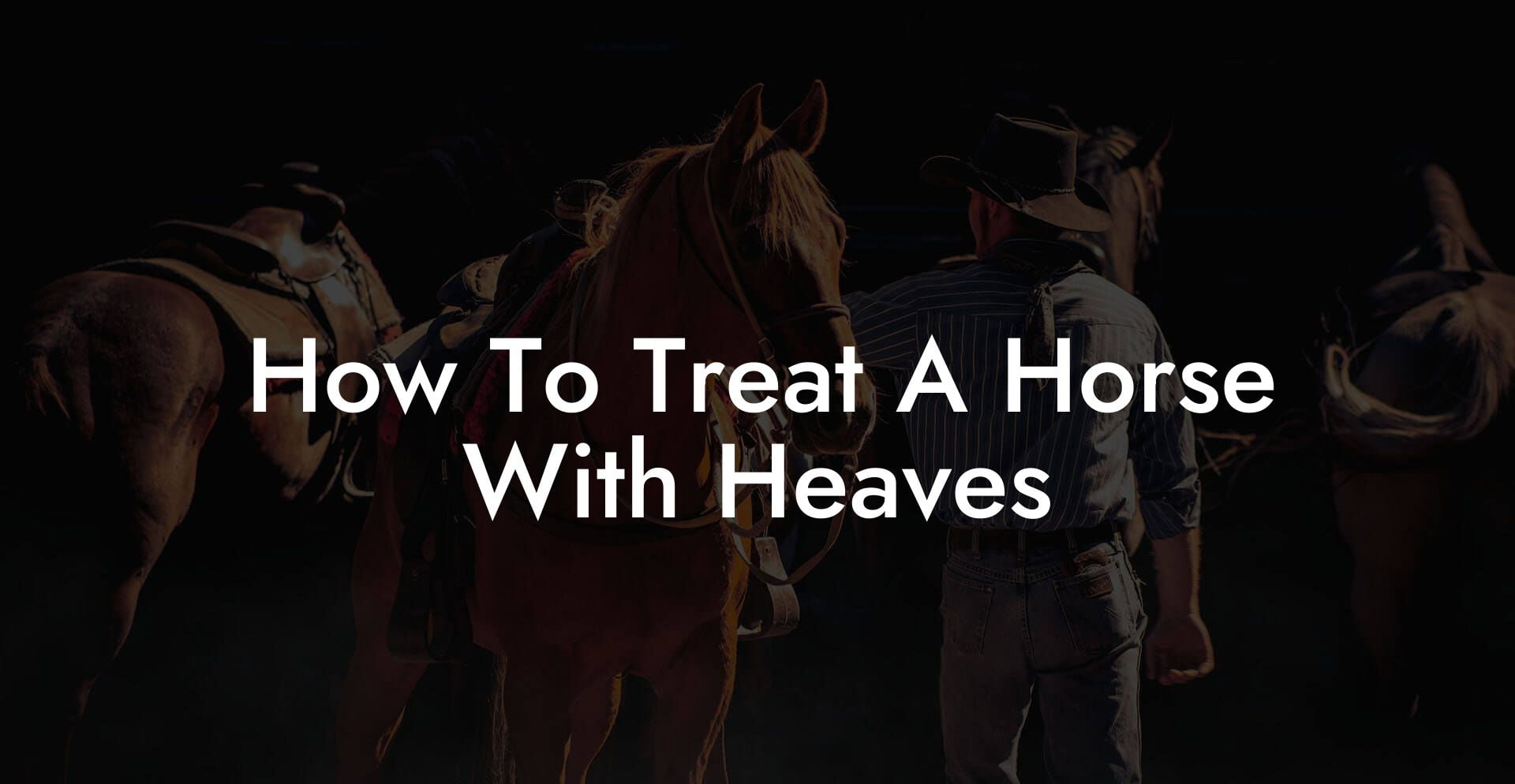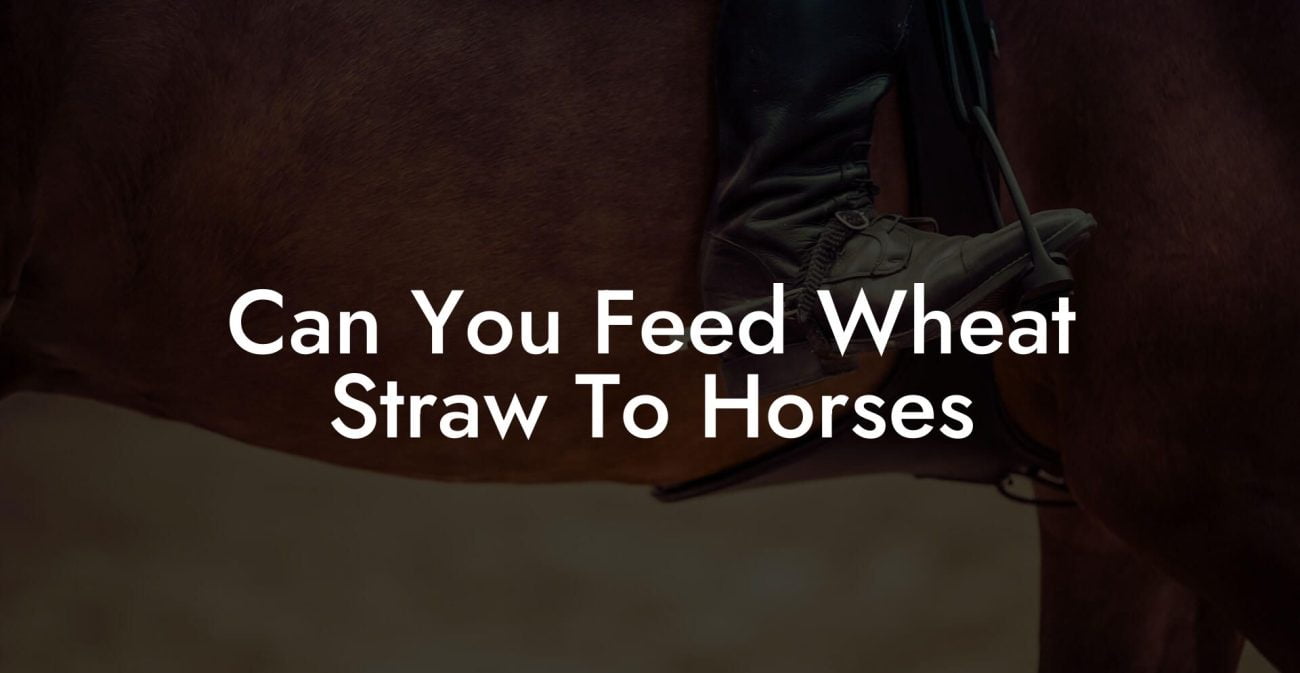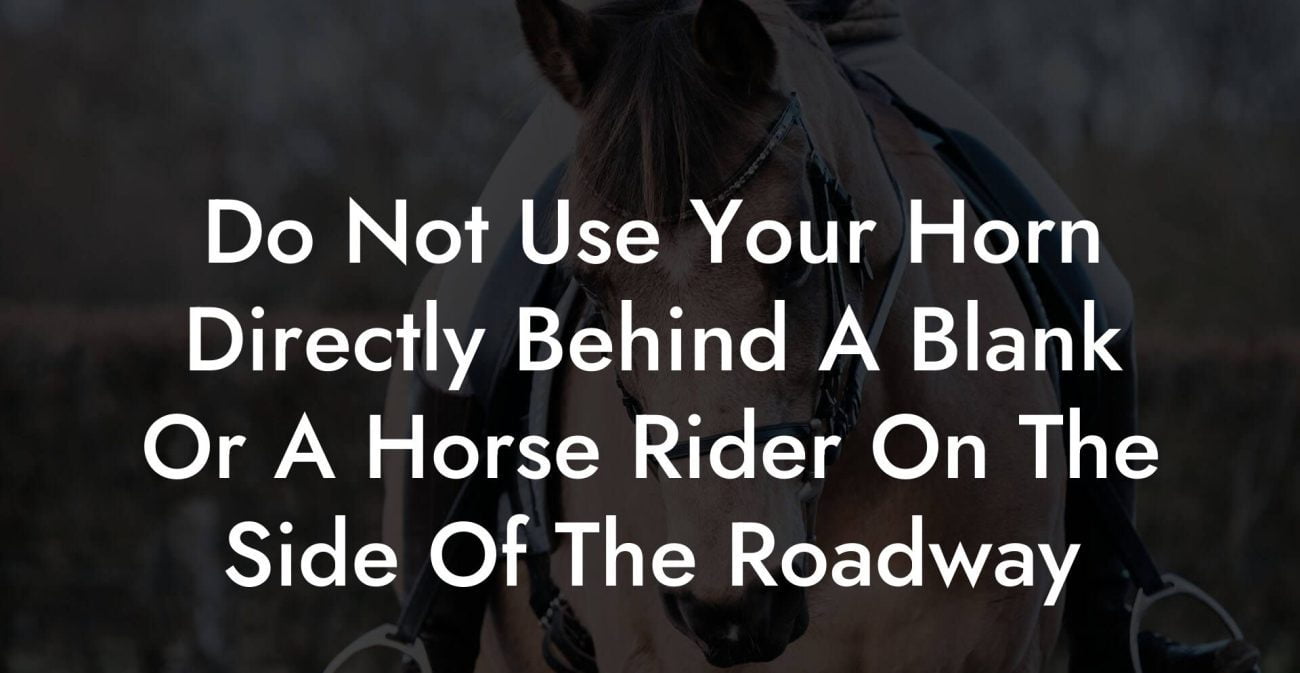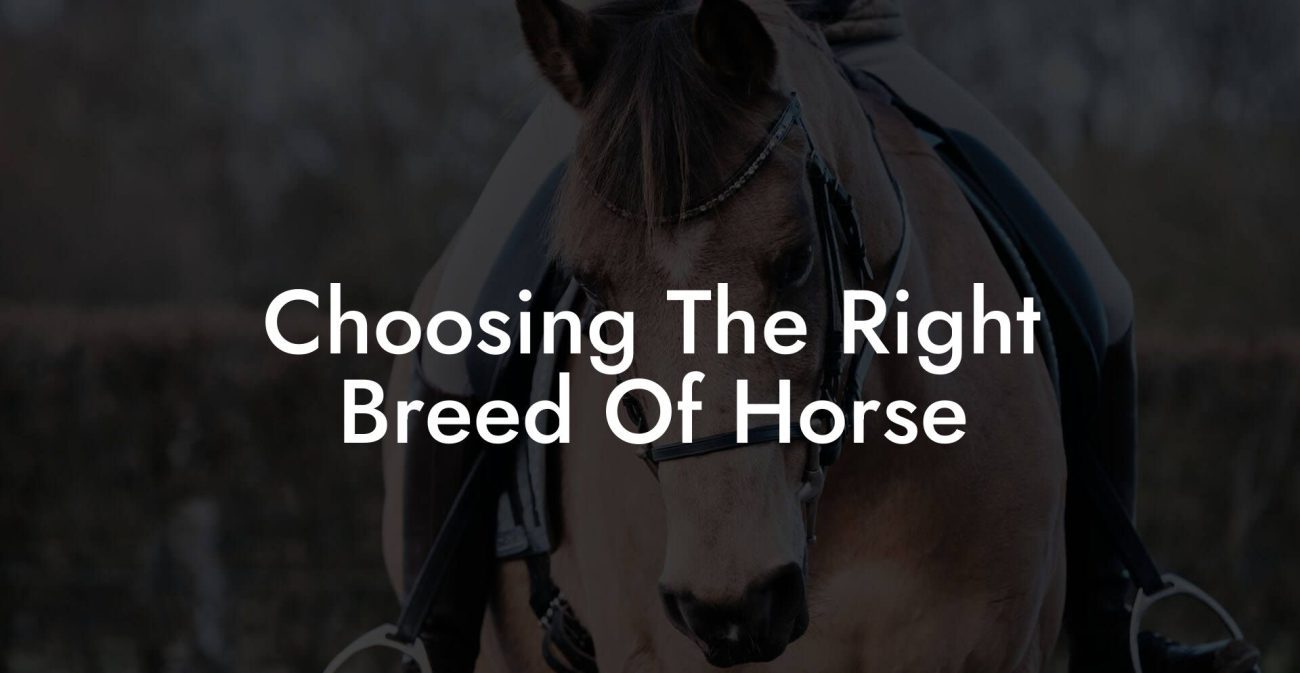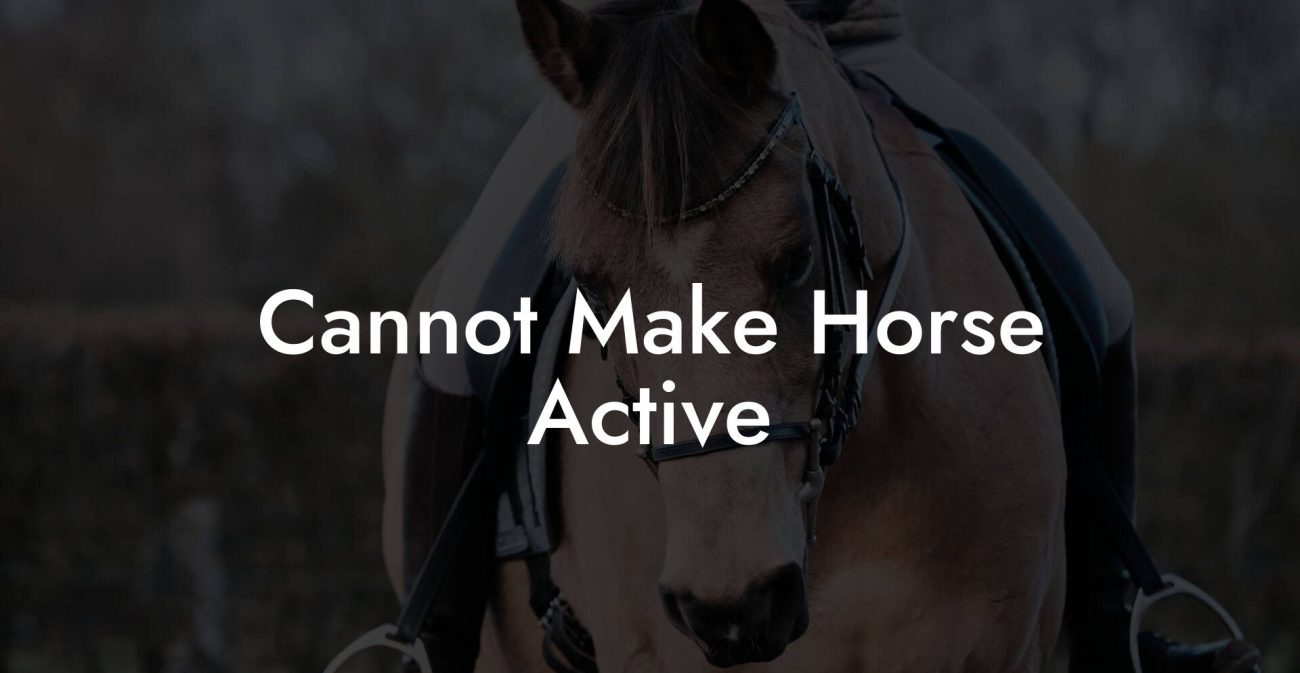Breathing easy isn’t just a human luxury, our equine pals deserve relief from the struggle too. If you’ve been staring down the barrel of a horse with heaves, you know that these bouts of labored breathing, frequent coughing, and dusty snorts aren’t just a passing phase. Let’s gallop headfirst into the world of equine respiratory health, explore why your horse might be struggling and how you can treat a horse with heaves using both conventional veterinary breakthroughs and holistic, whip-smart strategies.
Quick Links to Useful Sections
- Understanding Heaves: When Your Horse’s Breathing Goes Haywire
- Identifying the Symptoms: Is Your Horse Really Having a Heaves Flare-Up?
- The Veterinary Approach: Conventional Treatments for Equine Heaves
- 1. Inhaled Medications
- 2. Nebulization Therapy
- 3. Systemic Medication
- Integrative and Holistic Approaches: A Breath of Fresh Air
- Environmental Management: Clearing the Air
- Dietary and Nutritional Support
- Integrative Therapies: Breathing Beyond Conventional Medicine
- Managing Stress and Enhancing Overall Well-Being
- Creating a Calming Environment
- Interactive Enrichment and Socialization
- Mindful Handling and Routine
- Case Studies: Real-Life Success Stories in Treating Horse Heaves
- Case Study 1: Buster’s Big Break
- Case Study 2: Lady Star’s Holistic Revival
- Case Study 3: The Team Effort in a Competitive Stable
- Preventive Measures: Keeping Heaves at Bay for the Future
- Regular Veterinary Check-Ups
- Implementing an Allergen-Reduced Environment
- training and Exercise Modifications
- Tailored Nutrition Plans
- Resources and Community Support: Your Next Steps
- Step-by-Step Blueprint: Creating Your Personalized Heaves Management Plan
- Step 1: Comprehensive Diagnosis
- Step 2: Immediate Symptom Relief
- Step 3: Revamp the Environment
- Step 4: Integrate Holistic Therapies
- Step 5: Tailor the Nutrition
- Step 6: Monitor, Adjust, Repeat
- Tech Tools and Tracking: Modern Innovations in Managing Equine Heaves
- FAQ: Answering Your Burning Questions About Treating Horse Heaves
- Your Path to Healthier, Happier Horses
Understanding Heaves: When Your Horse’s Breathing Goes Haywire
Heaves, clinically known as recurrent airway obstruction (RAO), is a chronic respiratory condition that some horses develop, especially those frequently exposed to dust, mold, and other airborne irritants in their stables or pastures. Picture your horse’s lungs staging a mini rebellion, where inflamed airways and mucus production lead to persistent coughing, labored breathing, and overall discomfort. For Gen-Z and millennial horse owners interested in a holistic lifestyle, treating a horse with heaves is not just about symptom relief; it’s about creating a balanced environment that promotes overall well-being.
This condition is comparable to asthma in humans, where the airway narrows causing shortness of breath, wheezing, and a fighting chance of merely surviving each day’s dusty challenges. Equine heaves is more than just an occasional bout of catching a chill, it’s a definite warning sign that the environment and management practices should get a serious makeover.
In this guide, we’ll share the ins and outs of the condition, dissect conventional treatments, and dive into integrative, holistic approaches that add a little extra “oomph” to your horse care routine. Ready to ride along?
Identifying the Symptoms: Is Your Horse Really Having a Heaves Flare-Up?
Recognizing heaves is the first step towards effective treatment. Much like you might notice a friend coughing non-stop after spending a weekend in a smoky room, your horse might signal trouble with a series of telltale signs:
- Persistent Cough: A dry, non-productive cough that might increase during physical exertion or after being in a dusty environment.
- Labored Breathing: Noticeable effort during inhalation and exhalation, often accompanied by flaring nostrils and an elongated exhale.
- Muffled Performance: Reduced stamina, reluctance to exercise, and an overall reduction in performance caused by the struggle to catch enough oxygen.
- Mucus Production: Occasionally, a clear or slightly foamy nasal discharge may accompany the respiratory distress.
- Increased Sensitivity to Allergens: A sudden sensitivity to dusty hay, mold-infested bedding, or pollen.
If your horse is showing these signs, it’s time to saddle up and explore the numerous avenues for treatment that go beyond your standard hay regimen.
The Veterinary Approach: Conventional Treatments for Equine Heaves
When it comes to treating a horse with heaves, veterinarians typically recommend a two-pronged approach: provide immediate relief from the symptoms while also working to reduce exposure to triggers.
1. Inhaled Medications
Just as we might use an inhaler for asthma, veterinarians often prescribe inhaled bronchodilators and corticosteroids to help open the airways and reduce inflammation. These medications work quickly to ease the struggle of every breath and provide a much-needed respite to your beleaguered equine friend.
Popular Medications Include:
- Aminophylline or Theophylline: These bronchodilators work by relaxing the smooth muscles in the airways, making breathing a less dramatic affair.
- Fluticasone or Budesonide: Corticosteroids that help reduce the inflammatory response in your horse’s lungs.
While these treatments can be a game-changer during flare-ups, they’re best used in conjunction with longer-term strategies that focus on environmental and lifestyle alterations.
2. Nebulization Therapy
Nebulization is a nifty way to deliver medication directly into the lungs in mist form. This method is particularly beneficial because it allows for targeted treatment, reducing potential side effects while easing your horse’s respiratory discomfort.
The therapy typically involves a specially designed mask and a nebulizer machine, turning the medication into a fine mist that is inhaled deeply with every labored breath.
3. Systemic Medication
In more severe cases, injectable medications may be necessary. These systemic treatments aim to reduce inflammation from within and help stabilize your horse’s respiratory function over a longer period. However, these are usually reserved for acute flare-ups under strict veterinary supervision.
By utilizing these conventional treatments, veterinarians can quickly ease your horse’s breathing difficulties, ensuring that every gallop and canter isn’t marred by respiratory distress. But treating heaves isn’t just about medications, real healing happens when we address the root causes.
Integrative and Holistic Approaches: A Breath of Fresh Air
Sure, inhalers and nebulizers are a lifesaver in immediate scenarios, but what if the key to long-term respiratory health lies in tweaking your horse’s lifestyle? For the modern, eco-conscious, Gen-Z, and millennial horse owner, integrative and holistic approaches matter. Here’s how you can create a well-rounded strategy for treating a horse with heaves:
Environmental Management: Clearing the Air
One of the biggest culprits behind heaves is a less-than-ideal environment. Dusty stables, moldy hay, and damp bedding can all trigger inflammatory responses. The first step in treating a horse with heaves involves rethinking your horse’s immediate surroundings.
Key Environmental Adjustments Include:
- Improved Ventilation: Ensure your stable is well-ventilated to minimize the buildup of dust and airborne allergens. Fans, open windows, or installing additional vents can make a huge difference.
- Choice of Bedding: Replace traditional straw or hay bedding with low-dust alternatives like wood shavings or specialized bedding designed to reduce allergen exposure.
- Hay Quality: Use soaked hay or invest in hay nets that keep dust levels down. Steaming hay before feeding is another clever trick to reduce spore counts.
- Regular Cleaning: Keep the stable, stalls, and surrounding areas scrupulously clean. Regularly remove dust, wash walls, and vacuum floors to create a sanctuary of clean air.
By minimizing airborne irritants, you’re not only treating a horse with heaves but also creating a habitat that promotes long-term respiratory wellness.
Dietary and Nutritional Support
What your horse eats plays a surprisingly crucial role in its ability to combat and manage inflammatory conditions like heaves. Think of nutrition as the ultimate backstage pass, fueling not just energy but also healing and immune function.
Nutritional Tips for Equine Respiratory Health:
- Essential Omega-3 Fatty Acids: Aim for feeds rich in omega-3s to help reduce inflammation. Flaxseed, chia seeds, or specially formulated supplements can be a great addition.
- Antioxidant-Rich Foods: Incorporate ingredients high in vitamin E and selenium, which support immune function and help repair lung tissue.
- Hydration is Key: Ensure constant access to fresh, clean water. Hydration helps keep mucus thin and easier for your horse to expel during a flare-up.
- Balanced Minerals and Vitamins: Work with your equine nutritionist to verify that your horse’s diet is balanced, providing all necessary micronutrients to support a healthy immune response.
A strategic dietary plan can be your secret weapon in fighting chronic inflammation and reducing the severity of heaves.
Integrative Therapies: Breathing Beyond Conventional Medicine
Integrative therapies combine the best of conventional treatments with holistic practices that help harmonize your horse’s overall health. The goal isn’t simply to suppress the symptoms, but to empower your horse to heal from within.
Herbal Remedies and Supplements
Traditional herbal remedies have been used for centuries to support respiratory health in horses. Herbs like ivy leaf, thyme, and licorice root may help to soothe irritated airways and support immune function. While these supplements are not a replacement for medication, they can serve as a supportive measure when used responsibly and administrated under the guidance of a veterinarian.
Acupuncture and Acupressure
Yes, acupuncture isn’t just for humans! Many holistic practitioners now apply these techniques to horses, targeting specific acupoints to relieve airway constriction and reduce stress. This technique not only eases the respiratory symptoms but also works wonders on your horse’s overall relaxation and well-being.
Physical Therapy and Respiratory Exercises
It might sound unconventional, but breathing exercises aren’t just for yoga enthusiasts, they can be adapted for horses too. Through guided movement and controlled physical therapy, some practitioners help horses optimize their lung capacity and train them to breathe more deeply and efficiently.
Integrative therapies add layers of support that help treat a horse with heaves on more than one front, addressing not only the physical manifestation but also the underlying stress and inflammation.
Managing Stress and Enhancing Overall Well-Being
Stress, in any creature, is a silent saboteur. For horses, stress can aggravate the inflammatory processes in the lungs and further exacerbate symptoms of heaves. Gen-Z and millennial horse owners know that in today’s hustle culture, it’s not just about getting by, it's about thriving. That means addressing the mental and emotional aspects of your horse’s health.
Creating a Calming Environment
Just as you might curate a calming space with essential oils, calming music, and a stress-free atmosphere, your horse’s stall and pasture deserve a similar touch. Soft, ambient lighting, regular schedules, and minimal exposure to loud or abrupt noises can work wonders in keeping your horse’s stress levels low.
Interactive Enrichment and Socialization
Horses are social beings, and isolation or boredom can lead to anxiety and stress, further impacting their breathing. Encourage regular turnout, interaction with other horses, and gentle, engaging enrichment activities that keep your four-legged friend happily occupied.
Mindful Handling and Routine
The way you interact with your horse can have a profound impact on its mental health. Gentle, mindful handling, using slow, calming movements and a soothing tone, can help reduce anxiety. Establishing a reliable routine for feeding, exercise, and rest gives your horse the security necessary to combat the challenges of chronic respiratory conditions.
By incorporating stress management techniques, you empower your horse to build resilience against flare-ups, fostering an environment where healing is natural.
Case Studies: Real-Life Success Stories in Treating Horse Heaves
Sometimes, hearing success stories from the field can be just the spark needed to inspire change. Below are a few case studies that highlight how a combination of conventional treatment and holistic management can transform a horse’s quality of life.
Case Study 1: Buster’s Big Break
Buster, a once high-spirited gelding, began showing signs of chronic coughing and labored breathing during hay time. His owner, Jana, noticed that every dusty day in the old, poorly-ventilated barn left him gasping. After a thorough veterinary evaluation, Buster was started on a regimen of inhaled corticosteroids and bronchodilators. But Jana didn’t stop there, she revamped his stable by installing better ventilation, switching to low-dust bedding, and even soaking hay before feeding.
Within weeks, Buster’s symptoms markedly improved. His energy soared during turnout sessions, and fan-favorite slow-mo videos of his playful canter quickly became the talk of the online equine community.
Case Study 2: Lady Star’s Holistic Revival
Lady Star, a graceful mare with a touch of diva, was exhibiting all the classic signs of heaves. Her owner, Marco, a self-professed “horse whisperer” with a penchant for holistic wellness, introduced a multi-modal approach. In addition to standard veterinary care, Marco integrated acupuncture sessions, herbal respiratory teas, and even daily relaxation routines played out with soft background sounds of nature.
The transformation was nothing short of remarkable. Lady Star not only regained her robust energy but also became more sociable and less prone to the stress-induced flare-ups that once marked her days, proving that a blend of conventional and holistic care can truly work miracles.
Case Study 3: The Team Effort in a Competitive Stable
In a performance stable where every horse was a contender, one stallion named Turbo began lagging behind his peers due to recurrent airway obstruction. Concerned trainers and veterinarians came together to overhaul his environment, installing state-of-the-art dust control systems, updating his feed regimen with top-notch anti-inflammatory supplements, and incorporating regular nebulization therapy.
Turbo’s progress became a win-win story, not only revitalizing his performance but also inspiring other owners to consider integrative approaches. His recovery journey resonated widely on social platforms, drawing attention to how simple changes in management can create major leaps in respiratory health.
These case studies underscore the reality that treating a horse with heaves isn’t a one-size-fits-all process, it’s a layered, comprehensive strategy that, when executed right, can bring dramatic improvements to your horse’s quality of life.
Preventive Measures: Keeping Heaves at Bay for the Future
Prevention is always better than cure, especially when it comes to chronic respiratory conditions. By proactively managing your horse’s environment and overall health, you can keep heaves flare-ups at bay.
Regular Veterinary Check-Ups
Regular visits to your trusted equine vet not only catch early signs of respiratory issues but also allow for timely adjustments in treatment protocols. Routine check-ups can catch subtle changes in lung sounds and provide a baseline against which improvements (or declines) can be measured.
Implementing an Allergen-Reduced Environment
Invest in the latest stable management innovations such as dust-free feeders, automated ventilation systems, and hypoallergenic bedding options. Repurposing old stables with modern technology can significantly reduce the triggers that set off heaves.
training and Exercise Modifications
Continuous, well-monitored exercise is essential for maintaining lung capacity and overall stamina. Include regular, low-intensity activities that promote gentle breathing while avoiding overexertion during high-dust conditions.
Tailored Nutrition Plans
Collaborate with equine nutrition experts to develop a customized feeding plan that includes supplements, antioxidant-rich feeds, and ensures optimal hydration. This proactive stance not only minimizes inflammation but also builds robust respiratory health over time.
Adopting preventive measures is all about forward-thinking, ensuring that your horse’s day-to-day life is as serene as it is active, reducing the future risk of inevitable flare-ups.
Resources and Community Support: Your Next Steps
Feeling overwhelmed? Don’t sweat it, there’s a community of dedicated equine enthusiasts, veterinary experts, and holistic healers ready to share their insights and support you on this journey. Here are some valuable resources to connect with:
- Equine Health Websites: Check out sites like The Horse, Equine World, and Professional Horseman for up-to-date research and care tips specifically focused on respiratory issues like heaves.
- Veterinary Associations: The American Association of Equine Practitioners (AAEP) offers a wealth of knowledge on the latest treatment protocols and best practices for managing equine respiratory disorders.
- Community Forums and Social Media Groups: Platforms like Facebook, Reddit, and specialized equine forums are goldmines for shared experiences, advice, and success stories. Engaging with these communities can provide real-time support, troubleshooting tips, and even product recommendations.
- Local Equine Therapy Centers: If you’re inclined toward holistic approaches, search for nearby equine therapy centers that offer acupuncture, herbal remedies, and modern alternatives to traditional treatments, a hands-on way to see integrative care in action.
- Webinars and Workshops: Look out for online events and workshops hosted by equine experts which are fantastic opportunities to dive deep into innovative management strategies and network with like-minded horse enthusiasts.
Taking a proactive step towards understanding and managing heaves not only helps your horse but also builds a community of support, learning, and sustainable equine well-being.
Step-by-Step Blueprint: Creating Your Personalized Heaves Management Plan
Transforming your horse’s respiratory health isn’t a spur-of-the-moment decision; it takes careful planning, incremental changes, and continuous evaluation. Here’s your blueprint to treat a horse with heaves and keep those airways clear:
Step 1: Comprehensive Diagnosis
Begin with a thorough visit to your equine veterinarian. A detailed clinical exam, including lung function tests and perhaps, endoscopic evaluation, will set the stage for a targeted treatment plan.
Step 2: Immediate Symptom Relief
Once confirmed, initiate conventional treatment, administer bronchodilators, corticosteroids, or nebulization therapy as recommended. This immediate action provides the breathing space needed to start long-term recovery.
Step 3: Revamp the Environment
Evaluate your horse’s surroundings. Tackle dusty stables, revise bedding choices, and invest in improved ventilation systems to create an allergen-light living space.
Step 4: Integrate Holistic Therapies
Supplement conventional treatment with integrative therapies: introduce herbal supplements, consider acupuncture sessions, and incorporate controlled physical therapy to enhance lung capacity.
Step 5: Tailor the Nutrition
Partner with nutritional experts to design a diet plan that supports anti-inflammatory processes and bolsters the immune system, think omega-3-rich feeds, antioxidants, and specially formulated supplements.
Step 6: Monitor, Adjust, Repeat
Consistency is key. Maintain a daily log of your horse’s respiratory performance, note any fluctuations, and seek regular veterinary consultations to adjust the treatment plan accordingly.
This blueprint is dynamic, it evolves with your horse’s needs. By following each step deliberately, you’re not only treating a horse with heaves but also building a robust system that stands the test of time.
Tech Tools and Tracking: Modern Innovations in Managing Equine Heaves
In today’s fast-paced digital age, even equine care gets a tech upgrade. Various apps and monitoring systems can help you track your horse’s respiratory patterns, subtle changes in breathing, and even environmental conditions in the stable.
Innovative Solutions Include:
- Stable Environment Monitors: Devices that measure dust, temperature, and humidity levels help you maintain an optimal environment for your horse.
- Wearable Health Trackers: Just like fitness trackers for humans, some wearable devices for horses can monitor heart rate and activity levels, indirectly signaling respiratory distress if a flare-up is on the horizon.
- Mobile Applications: Apps dedicated to equine management allow you to record treatment sessions, track medication schedules, and communicate with your veterinarian in real time.
Leveraging modern technology enables you to stay one step ahead, ensuring your horse’s fight against heaves is coordinated, timely, and effective.
FAQ: Answering Your Burning Questions About Treating Horse Heaves
Have questions about tackling heaves? Check out these frequently asked questions that demystify many aspects of treating a horse with heaves.
1. What exactly causes heaves in horses?
Heaves are triggered primarily by prolonged exposure to airborne irritants like dust, mold spores, and pollen. Genetic factors and poor stable management can also contribute.
2. Are conventional inhalers effective for horses?
Yes, inhaled bronchodilators and corticosteroids are effective in managing acute symptoms, providing much-needed relief during flare-ups.
3. Can nutritional interventions really influence respiratory health in horses?
Absolutely. Diets rich in omega-3 fatty acids, antioxidants, and proper hydration significantly help reduce inflammation and support overall immune function.
4. Is it safe to integrate holistic therapies like acupuncture for horses?
Under the supervision of a certified equine specialist, therapies such as acupuncture have safely and effectively been used to alleviate respiratory distress in horses.
5. How quickly can I expect improvements once treatment starts?
Improvement varies by horse and treatment plan. While medications provide rapid relief, environmental and holistic changes may take several weeks to show significant results.
6. What steps can I take to prevent heaves in the future?
Maintaining a clean, dust-reduced stable, regular veterinary check-ups, and a balanced diet are key preventive measures. Integrating stress reduction and physical activity will also help keep your horse’s respiratory system strong.
7. Are there any technological aids available to monitor my horse’s condition?
Yes, from stable environment monitors to wearable trackers and equine health apps, modern tech can help track any changes in your horse’s breathing and overall performance.
8. Can I manage heaves entirely at home?
While many integrative practices can be applied at home, it’s important to coordinate with veterinarians for proper diagnosis and to fine-tune treatments as needed.
Your Path to Healthier, Happier Horses
Treating a horse with heaves is more than just managing a condition, it’s about embracing a lifestyle that merges smart, modern veterinary care with holistic, environment-driven solutions. With the right mix of medications, integrative therapies, environmental tweaks, and nutritional adjustments, you’re not only addressing the symptoms but also setting the stage for long-term respiratory wellness.
Every change you make, whether it’s updating the stable ventilation, switching to a low-dust bedding, or trying out a new herbal supplement, plays a critical role in your horse’s journey to clearer, easier breaths. Just like curating a lifestyle that’s both high-tech and midnight-raver-cool, treating heaves is all about balance and intentional design.
Embrace the process, and remember, it’s okay if the journey is a bit bumpy. Every step you take toward a cleaner environment, a better diet, and a more mindful routine is a leap towards a healthier, happier horse. So dust off those old practices, upgrade your stable and lifestyle, and let your horse rediscover the joy of breathing easy.
From innovative treatments to grassroots community support, every resource is at your fingertips. Channel that Gen-Z innovation and millennial mindfulness as you transform not just your horse’s health, but the entire culture of equine care.
Here’s to more carefree rides, clear breaths, and a vibrant, thriving life for your equine companion. The journey is yours, step into it with confidence, creativity, and a passion for holistic well-being.

